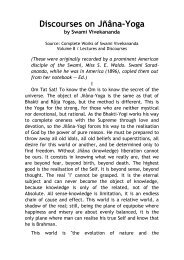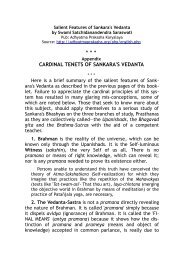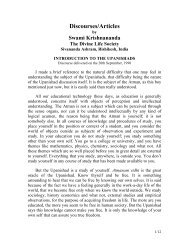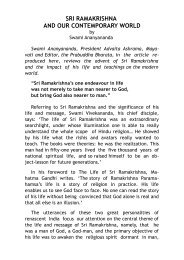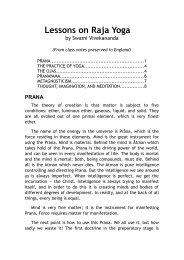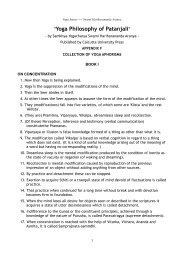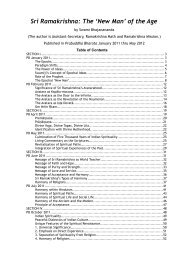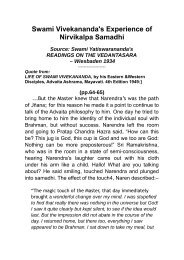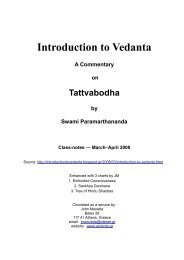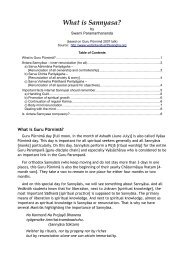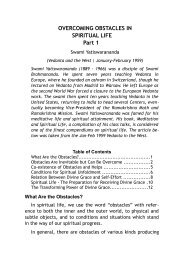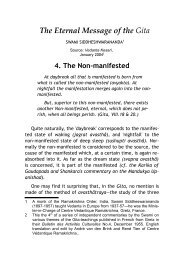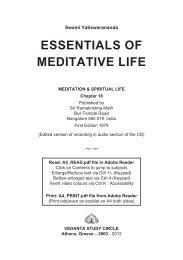Concentration & Meditation - Vedanta
Concentration & Meditation - Vedanta
Concentration & Meditation - Vedanta
You also want an ePaper? Increase the reach of your titles
YUMPU automatically turns print PDFs into web optimized ePapers that Google loves.
26 Swami Bhajananandasamkalpa. Later on it becomes unconscious and automatic.Every day we make so many samkalpas or intentions, suchas, “I will do this,” “I will eat that,” “Let me think of him,” and soon. Once a samkalpa is made, several ideas and emotions rushinto the mind. When we sit for meditation we may make thesamkalpa, “I will think of God alone; I will not think of anythingelse.” But owing to the action of past samskaras, so many ideasand desires or impulses rise in the mind and cause distractionsduring meditation. This is generally referred to as “wandering ofthe mind.”Control of the VrittisPatanjali uses the term vritti mostly to mean a cognitive modificationof the mind such as an idea or a concept. He defines yogaas the control of vrittis (yogascittavrtti nirodhah 1. 2). But beforecontrol of the vrittis becomes possible, they should be freed fromthe hold of impulses and drives.By themselves, images and words are harmless. It is the impulsesconnected to them that create all the trouble. Take, for instance,the case of a person addicted to smoking. Every time thememory of the pleasure of the experience or even a cigarette comesto mind, the smoker feels an urge to smoke. But if throughmedical advice and fear of cancer he succeeds in controlling thatimpulse, that person can think about smoking or cigarettes withoutfeeling the urge to smoke. Or suppose person B is rude toperson A. Later on A finds that whenever the memory of B arises,the impulse of anger also arises in his mind. But suppose A pardonsB. Then when the picture of B arises, it no longer createsanger in A’s mind.It is the hooking of instinctual impulses to memories that is theroot cause of all our emotional problems. This linking is of the natureof an invasion. Like surface-to-air missiles, impulses from theunconscious invade the memories which appear in the consciousmind. When this happens we act without thinking about past experiencesor future consequences. Says the Yoga Vasistha,“Vasana is the sudden seizing of an object without thinking aboutthe past or future owing to deep-rooted habit.” 88. Laghu Yoga Vasistham, 28.48.



